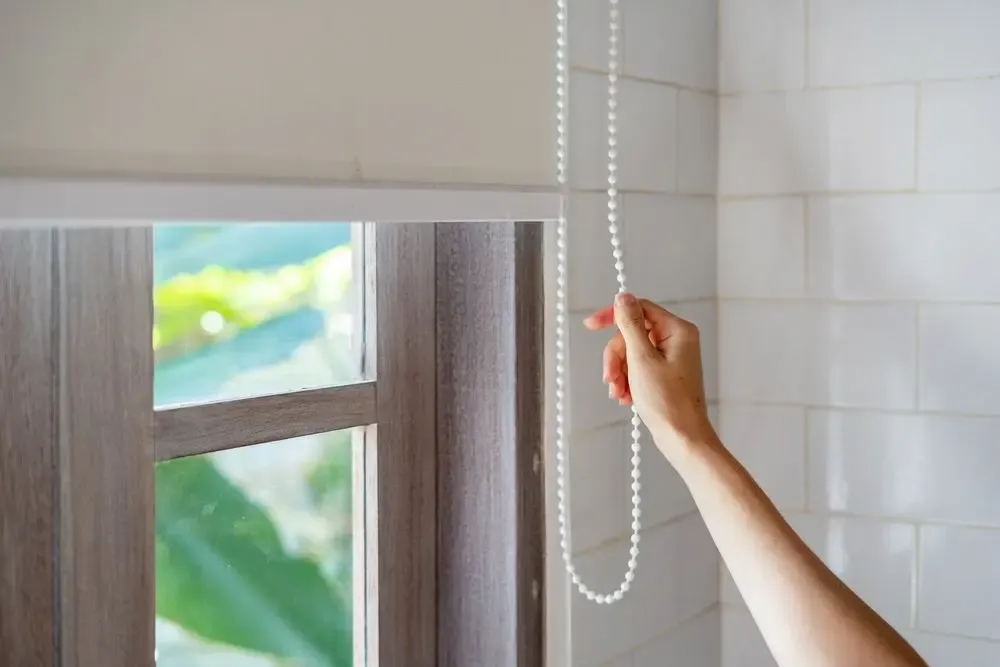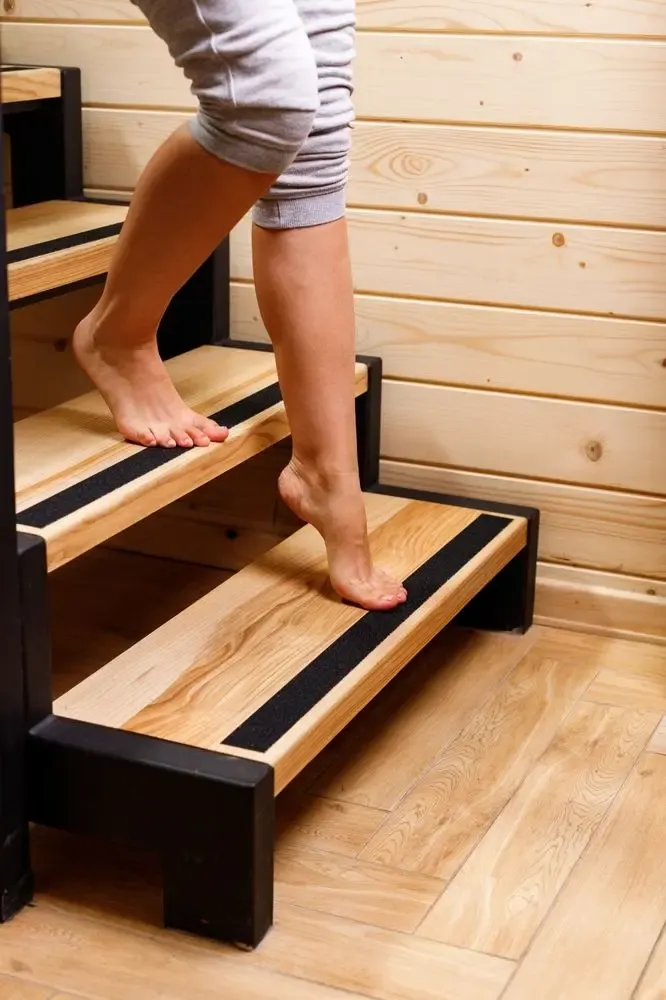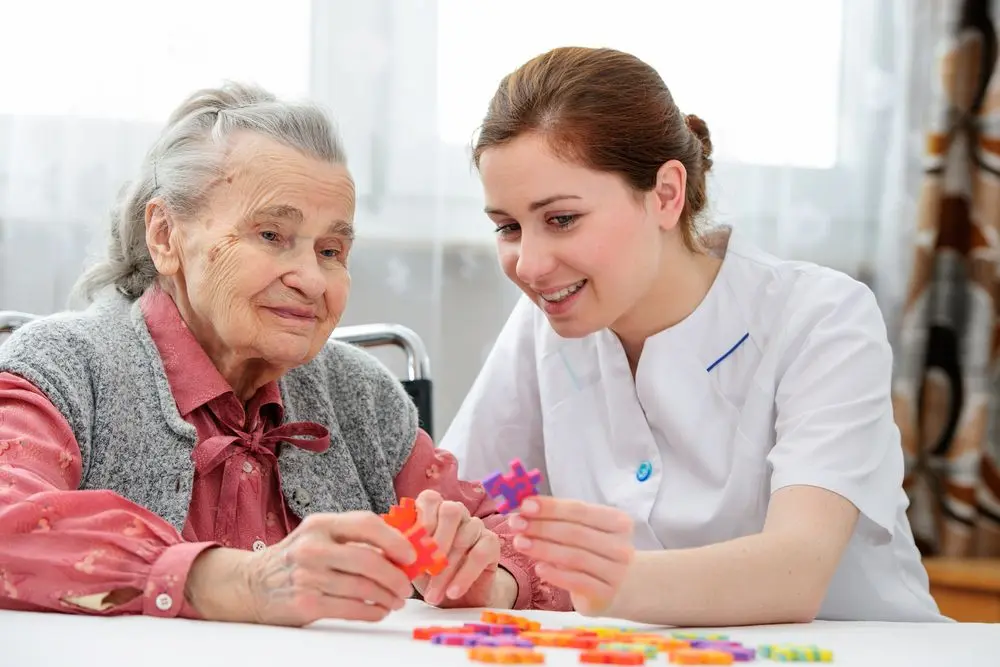Caring For Someone with Dementia: Tips & Advice

Estimated Reading Time: 12 minutes
Caring for someone with dementia can be a challenging, stressful yet often rewarding experience. Remember, looking after your own health as a carer is just as important.
Having a better understanding of what dementia looks like and how it typically progresses will make caring for a loved one easier.
In this article, we’ve covered the different stages of Alzheimer’s disease, coping with the progression of dementia, providing assistance with everyday tasks, preparing your home and the support that’s available to dementia carers.
Need to find dementia care fast?
Browse the best dementia care homes for your loved one.
In this article on caring for someone with dementia:
- Support with everyday tasks
- Preparing the home
- Communication advice
- Preventing wandering
- Driving and dementia
- Dementia care homes
- Dementia care at home
Support with Everyday Tasks
In the early stages of dementia, many people can enjoy their life in broadly the same way as they did pre-diagnosis.
But as symptoms worsen, the person living with dementia may begin to feel anxious and scared as they struggle to remember things and properly concentrate on conversations or complex tasks.
As a carer, it’s important to gently support the person in maintaining skills, abilities and an active social life. Providing dignified care while encouraging independence will make a huge difference to the person’s self-esteem and confidence.
Next, we’ve gone over numerous other everyday tasks and personal activities that may pose a problem and what you can do to help.
Eating and drinking
Regardless of whether or not you have dementia, having a well-balanced diet is an important part of leading a healthy lifestyle. People with dementia may not eat or drink enough, due to not realising they’re hungry or thirsty. This puts them at greater risk of constipation, headaches and heat-related conditions (including heat stroke and heat exhaustion.
Common food-related dementia problems include:
- Not recognising different foods
- Forgetting what food and drinks they like
- Refusing to eat food, especially nutritious foods
- Requesting unusual food combinations
How you can help
Follow these tips to make mealtimes a less stressful and more enjoyable experience for all:
- If they’re up to it, involve the person in meal preparation and cooking
- Set aside plenty of time for making meals
- Be prepared for food swings. You may need to try stronger or sweeter foods
- Provide finger foods if the person struggles using cutlery
- Serve any drinks in a clear glass or coloured cup that’s easy to hold
Make sure your loved one has regular dental check-ups to treat any discomfort or pain in the mouth. The food-related behaviours we listed can also be caused by sore gums, ill-fitting dentures, swallowing problems (dysphagia) or confusion.

Using the toilet
People with dementia will often experience problems related to using the toilet.
Urinary incontinence and bowel incontinence can be difficult to deal with. They can also represent an upsetting situation for yourself and the person you care for.
Sometimes, a person with dementia will simply forget where the toilet is or that they need the toilet.
Problems can be caused by:
- Urinary tract infections (UTIs)
- Constipation (which can cause additional pressure on the bladder)
- Certain medicines
How you can help
Though it may feel a little awkward and uncomfortable, understanding toileting problems is really important. Don’t be afraid to keep your sense of humour when it comes to these situations (if appropriate).
The following tips will help someone with dementia when using the toilet:
- Put a sign on the toilet door. Bright images and words work well
- Keep the toilet door open and keep a light on at night. You could also consider sensor lights
- Keep an eye out for signs that the person may need the toilet, such as fidgeting and standing up or down
- Try and keep the person active, as a daily walk helps maintain regular bowel movements
- Try to make going to the toilet part of a routine
If incontinence problems persist then ask your GP to refer the person to a continence adviser. They can offer guidance on things like waterproof bedding and incontinence pads.
Washing and bathing
It’s ordinary for people with dementia to become anxious about personal hygiene. They may need help with washing themselves.
The following are common concerns:
- Bath water being too deep
- The noise created by water from an overhead shower
- Slipping and falling
- Getting undressed in front of someone else, even their partner
How you can help
Washing is a personal activity, so try to be sensitive and respect the person’s dignity.
You can help out with washing and bathing while remaining respectful by following these tips:
- Ask the person how they’d like to be helped (be prepared to stay with them if they don’t want to be left alone)
- Re-assure them that you won’t let them get hurt
- Use a bath seat or handheld shower
- Use whatever shampoo, shower gel or soap the person prefers
Getting dressed
Dressing is a tricky task for many people living with dementia. People with dementia may become uncooperative and resistant to daily activities like getting dressed. Often, this is a response to feeling out of control or confused by what they’re being asked to do.
How you can help
When it comes to getting dressed, confusion can be avoided by reducing the person’s choices and removing rarely-worn clothes from their wardrobe. Any clothes left in the wardrobe should be loose-fitting and comfortable with easy-to-use zippers and minimal buttons.
To further help with independence in getting dressed, lay out each item of clothing in the order they’ll be worn.
Sleep problems
Dementia can affect sleep patterns and cause problems with a person’s body clock.
Those with dementia may get up repeatedly during the night and become disoriented when doing so. They may try to get dressed, due to being unaware that it’s still night-time.

How you can help
Often, sleep disturbances represent a stage of dementia that settles over time and stops being an issue.
In the meantime, try these tips to combat any dementia-related sleep issues:
- Put a dementia-friendly clock by the bed that shows whether it’s night or day
- Make sure the person gets plenty of daylight and physical activity during the day
- Remove caffeine and alcohol in the evenings
- Make the bedroom as comfortable as possible and have either a night light or blackout blinds (depending on what the person you’re caring for prefers)
- Try and limit daytime naps
Preparing the Home
When caring for a loved one with dementia at home, don’t ignore their environment. Just as you’ll have to adapt as a caregiver, you’ll also need to adapt the home in a way that’ll keep your loved one safe and secure.
Living areas
For better home safety, try and remove any clutter throughout your home. This creates safer walking paths while making rooms less visually overwhelming. Consider pairing furniture to simplify the environment as much as possible.
Because shiny floors are sometimes slippery and your loved one might see them as wet and difficult to walk on, it’s best to avoid these.
Mark any stairs with coloured duct tape or carpet tape to make them easier to see.

Bedroom
Making a bedroom safe means creating a space which is easy to see and navigate around.
Depending on how large the bedroom is, add lighted pathways and non-slip flooring for any middle-of-the-night bathroom runs. A comfortable and not-too-high-or-low bed will make for easier transfers. If there’s a nightstand or dresser next to the bed then try limiting the number of items on them to avoid confusion. Having a brightly coloured quilt will visually define the bed.
When caring for someone with dementia, the bedroom should be a visually appealing space, but not one that encourages spending too much time in it. If your loved one spends most of their day in the bedroom then loneliness and feelings of isolation may set in.
As we went over earlier, remove all but four or five of your loved one’s favourite outfits from their wardrobe - you’ll probably want to get their opinion on this! When the clothes are then laid out in the order they’re put on, your loved one will feel less confused and more independent.
Bathroom
Somebody with Alzheimer’s may struggle to see the edges of surfaces within a bathroom, particularly if they’re all the same colour. You can minimise this issue by adding bright accents. You could also paint the trim of the bathroom door red or add a coloured toilet seat so each of these individual elements stands out from one another.
Coloured, non-skid tape makes recognising the shower’s floor and the edge of a bathtub much easier. Tape also comes in handy around the sink and toilet.
Label the hot and cold taps with bold words and bright colours (hot and cold, red and blue) to prevent scalding. To be safe, you could turn down the temperature on your water heater. Bathing alone can be made easier by adding a tub seat or bench and a handheld shower spray. Grab bars by the bathtub and toilet will also prevent falls and reduce the chance of slipping.

Kitchen
Kitchens are filled with potentially dangerous items. From sharp knives to heated surfaces and dangerous chemicals, you should keep these out of sight where possible. Knob or dial covers are a simple yet effective stove/hob addition to prevent burns.
Labelling drawers and cabinets with big block letters or images will make what’s inside them much clearer.
Finally, a fire extinguisher and a working smoke detector with newly-changed batteries should be easily accessible within the kitchen.
Home adaptations
After a care needs assessment, your loved one's local authority may class them as eligible for small home adaptations (costing £1,000 or less), such as having grab rails or stair rails installed.
For a larger adaptation (more than £1,000), you can get a disabled facilities grant. These adaptations could include wheelchair ramps, widened doorways, lowering kitchen worktops or installing a stair lift. You can apply for home equipment through GOV.UK.
Communication Advice
The progression of dementia affects people’s communication skills and ability to express themselves. Here are some tips for better understanding and communicating with the person you care for:
- Try to look for the meaning behind their words
- Speak slowly and clearly while using simple language and short sentences
- Questions that only need a ‘yes’ or ‘no’ answer will further keep the conversation simple
- Avoid any questions that test memory - such as asking what they’ve been up to
- Avoid causing any arguments about responses, even if what they say is wrong
- Create a memory book to remember special occasions
Preventing Wandering
Somebody with dementia living at home will increase their risk of wandering, getting lost and hurting themselves. It may seem as though someone with dementia is wandering aimlessly but there are several reasons why this can happen, including boredom, medication side effects or an attempt to fulfil a physical need like thirst, hunger or exercise.

The following safeguards can help with wandering:
Secure gardens - A fenced outdoor courtyard and appropriate supervision will create a safe space for wandering. Similarly, regular companionship care and memory-stimulating activities will help reduce wandering
Door locks - Install slide bolt locks on all exit doors. Install lower locks if your loved one is tall and higher locks if they’re short
Motion sensors - Adding these to any exit doors will provide you with a warning if your loved one is trying to leave
Registering your loved one for the Alzheimer’s Safe Return Programme will help your loved one be safely returned home if they do wander off.
Driving and Dementia
Dementia can affect reaction times, reflexes and other aspects of driving, such as:
Eyesight and vision problems - Poor eyesight can affect the ability to see clearly from the sides or front-on
Hearing loss - It may become difficult to hear a car horn or siren
Mobility problems and pain - It may take longer to change gear, pull the handbrake or use the footbrake
Memory problems - Getting lost, confused or disorientated when driving in an unfamiliar area
Certain medications can also slow down reaction times or cause feelings of tiredness.
Ultimately, it’s your loved one’s decision (or that of the DVLA) to stop driving. With that being said, if you feel their driving ability is no longer safe then you have a responsibility to talk to them about it.
You might find it easier to discuss the issue by putting yourself in their shoes and thinking about the impact that giving up driving would have on your day-to-day life. If your loved one agrees to stop driving, be considerate and bear in mind that this may be a difficult adjustment.
Mobility centres offer lots of useful information, advice and assessments surrounding mobility and driving. They have trained staff who can assess somebody’s driving ability and look at how they could be helped to continue driving for longer (whilst remaining safe).
Dementia Care Homes
If your loved one’s care needs become too much for you to continue managing at home - even with the help and support of family members - then it may be time to consider other long-term options.
If you’re becoming exhausted and struggling to deliver an adequate level of care then it may be the right time for your loved one to go into a dementia care home.
While this is an undoubtedly difficult decision, there are limits to the care that you can provide, with a top-notch care home being more than capable of picking up the slack.
If the person you care for is moving into a care home, then familiar furniture, sentimental belongings, their favourite music and photos packed with memories can help them feel more settled.

Dementia Care at Home
Dementia care can also be provided in the comfort of your loved one's home. We're partnered with the UK's best home care providers, many of which offer dementia care at home.
A home carer may regularly visit your loved one throughout the week to provide whatever assistance is required, or move in with them on a full-time basis if they have greater care needs.
Along with specialist dementia care, our partners provide personal care, including bathroom assistance, continence care, support with eating and drinking, oral medication support and other personal hygiene-related assistance. Your loved one can also receive help with household tasks like cleaning, food preparation and cooking, laundry and any other housekeeping.
Through Lottie, you can choose between early-stage and late-stage dementia home care, depending on your loved one's symptoms.



